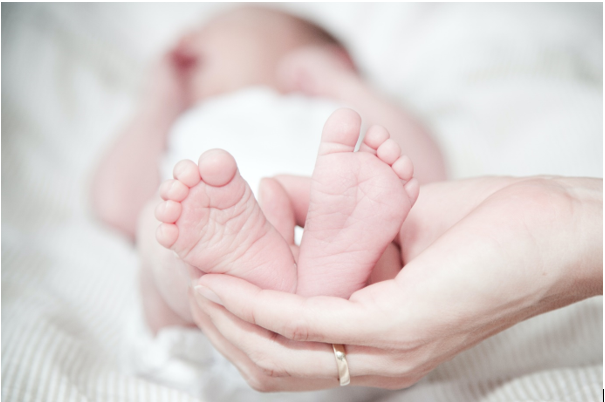Birth Injury Prevention: Seven Steps to Ensure a Safe Delivery

For every mom-to-be, going through a safe pregnancy and giving birth to a happy and healthy child is a top priority. However, no matter how healthy you’ve been throughout your pregnancy, the childbirth process is not always smooth sailing, and unexpected problems may arise.
nnnnBirth injuries are a concerning aspect of childbirth. Even a mild occurrence of these injuries can cause long-lasting physical and health problems in your newborn. Thankfully, there are many ways in which you can reduce the risk of birth injuries and ensure safe delivery.
nnnnIf you’re approaching your delivery date, we’ve arranged a list of steps to help you prepare yourself for a safe delivery and give birth to a healthy baby. But first, let’s take a look at some common birth injuries and their causes so you can take preventive measures well in time:
nnnnWhat are Birth Injuries, and Why Do They Occur?
nnnnDespite a healthy pregnancy and no prior complications, a baby or mother can experience physical injuries during childbirth. While minor injuries like bruises and lesions can be healed, severe injuries to the brain, spinal cord, and neural networks can cause lifelong disabilities, developmental delays, and neurological disorders in children. These injuries include:
nnnn- n
- Brachial plexus injuries nnnn
- Cerebral palsy nnnn
- Fractures nnnn
- Intracranial hemorrhage nnnn
- Perinatal asphyxia nnnn
- Facial nerve injuries n
In most cases, birth injuries occur due to medical malpractice or deliberate negligence on the part of the healthcare practitioner and their team handling the delivery. Families who become a victim of medical negligence can file a claim for compensation and legal penalties. The average settlement for birth injury lawsuits can be up to $1 million to cover the medical expenses of the affected child and improve their quality of life. Although money cannot replace the damage done to a child’s health, parents can use this amount to get the best medical care for them and ensure timely treatments and therapies. Regular treatments can prevent symptoms from aggravating and improve living conditions for the affected children.
nnnnHow to Ensure a Safe Delivery
nnnnAlthough some birth injuries are unanticipated and cannot be prevented, there are numerous ways expecting mothers can ensure a healthy pregnancy and reduce the risks of birth injuries. Here’s how:
nnnnPrecautions During Pregnancy
nnnnSometimes, pregnancy complications can increase the chances of birth injury. The journey of a safe delivery begins the moment you test positive for pregnancy. You can protect your unborn child’s physical and mental health and ensure a safe delivery by following these simple steps:
nnnn1. Find an Experienced and Competent Healthcare Provider
nnnnBirth injuries mainly occur when the healthcare provider ignores a severe yet preventable issue during the childbirth process. Since medical malpractice is a common culprit behind most birth injury cases, it’s important to choose a qualified and experienced healthcare provider to take care of your delivery process.
nnnnWhether you’re seeking a gynecologist, obstetrician, or midwife, you need to make sure they have years of experience in dealing with complicated pregnancies and have a strong reputation for safe deliveries. Try to strictly follow your prenatal appointments and share all your concerns with the healthcare provider. Ask direct questions and maintain open communication with your doctor. This way, you can not only ensure that you’re well-prepared for labor but also increase the likelihood of a safe and successful childbirth.
nnnn2. Manage Chronic Conditions
nnnnPregnant women with chronic health conditions such as diabetes or hypertension are at a higher risk of experiencing birth injuries. These conditions can make your labor more difficult, causing fetal distress and a lack of oxygen for the baby. Moreover, these conditions can cause a low birth weight or premature birth, which increases the risk of birth injuries. Some chronic mental health conditions like depression and anxiety, as well as substance abuse, can also increase the likelihood of birth complications.
nnnnManaging chronic conditions can do quite the opposite. When you maintain optimum health and quit unhealthy habits like smoking and drug abuse, you can significantly increase your chances of a healthy pregnancy and normal development. This way, you can ultimately reduce the risks of complications, premature birth, and low birth weight.
nnnn3. Take Prenatal Classes for Childbirth Education
nnnnAttending childbirth education classes can help expecting parents understand the birthing process in detail and prepare adequately for labor. Mothers can practice various breathing techniques that help maintain an optimum flow of oxygen to the fetus during the labor process. Moreover, mothers can educate themselves about various pain management options and any potential complications.
nnnnWhen you know the challenges, you can stay cautious of any signs of complications during childbirth and make the best decision about your pain management and delivery methods.
nnnnLabor and Delivery Practices
nnnnWhen your body goes into labor or your water breaks, there are several things you can do to reduce the likelihood of birth injuries. Here are some steps to ensure a safe delivery during labor and delivery:
nnnn1. Physical Activity Can Ease Out Labor Process
nnnnA labor that lingers for more than 24 hours can put the fetus into distress and affect oxygen flow. This can result in birth injuries and severe damage to the nervous system. However, there are natural ways to expedite labor and open the cervix in a shorter period naturally.
nnnnHealthy and soothing physical activity is by far one of the most effective ways to stimulate cervix opening and speed up your labor process. You may feel exhausted and weary during labor. Still, activities like taking a warm shower, getting a body massage, and taking a stroll can be extremely helpful in speeding up the labor process without causing any complications.
nnnn2. Avoid Unnecessary Interventions
nnnnWhen labor gets too painful to tolerate, doctors often recommend pain management options like medications, epidural anesthesias, spinal blocks, analgesics, etc. However, getting unwanted medication during childbirth can increase the risk of complications and birth injuries. So try to cope with your pain naturally and avoid medications.
nnnnYou can leverage natural remedies for your pain, such as a back or feet massage, deep breathing, a warm bath, or even distraction techniques. Moreover, if you feel that you’re capable of giving birth to your child naturally, try to avoid unnecessary medical interventions like induction, cesarean sections, and episiotomies.
nnnn3. Make Sure Your Baby is Being Continuously Monitored in the Labor Room
nnnnHealthcare providers must monitor fetal heart rate frequently during the labor process to avoid complications like fetal distress and oxygen deprivation. Make sure your healthcare provider is continuously monitoring fetal heart rate and contractions. In case you notice dips in fetal heart rate on the screen, call the nursing staff or the doctor immediately.
nnnnFinal Thoughts
nnnnYour child is the most precious asset for you, and ensuring a safe birth is your primary responsibility. Birth injuries can be the worst nightmare for any expecting mother, but with the right approach, many potential birth injuries can be easily prevented. Follow the above easy steps to prevent birth injuries and ensure the best possible outcome for both mother and baby.
n


